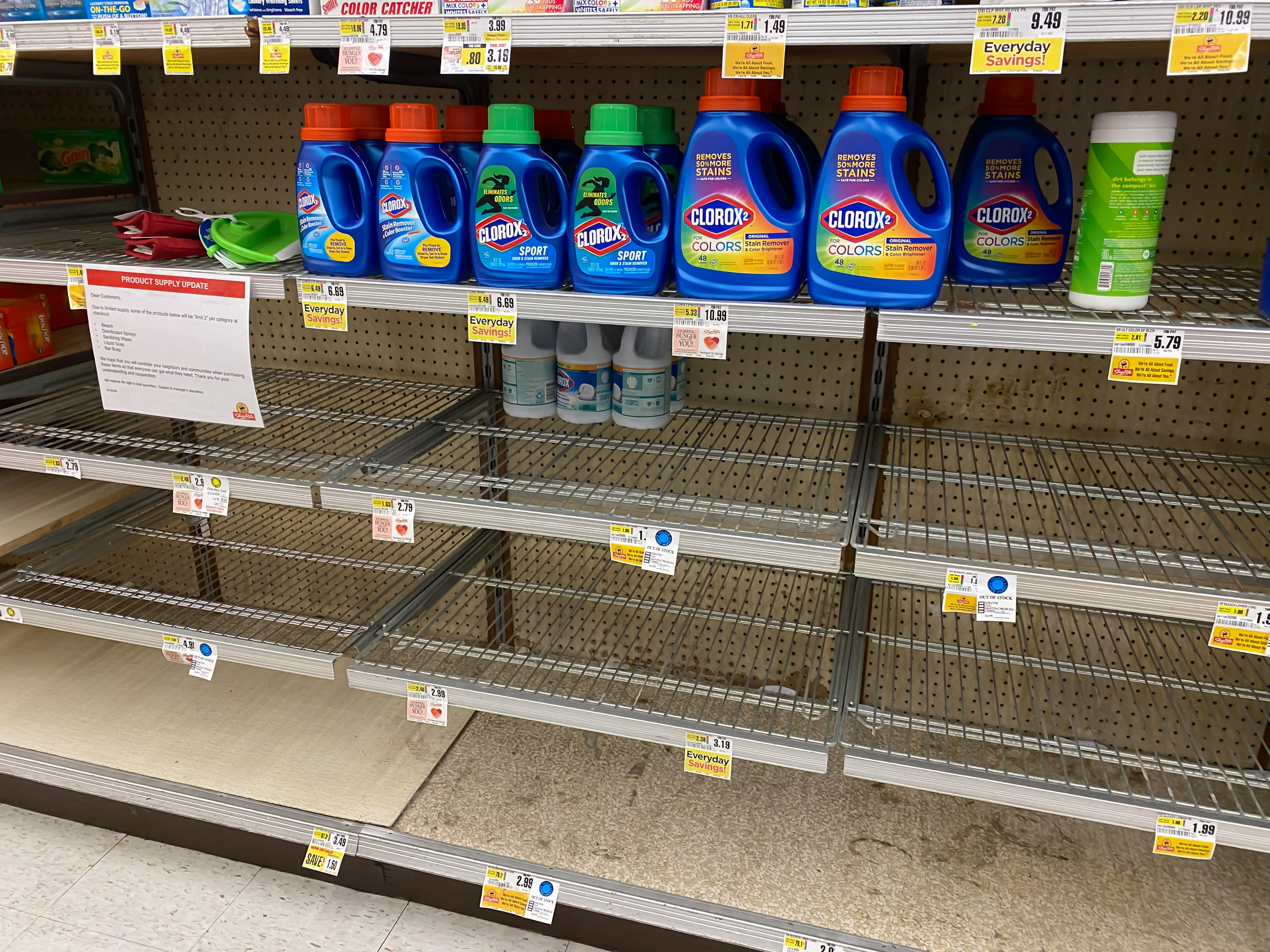
A general view of the empty shelves in the bleach and cleaning supply isle on March 13, 2020 at Shop Rite Supermarket in Millburn, NJ.
Rich Graessle | Icon Sportswire | Getty Images
The lobbying group representing some of America’s largest consumer companies sent a letter Sunday to Secretary of State Mike Pompeo and U.S. Trade Representative Robert Lighthizer urging them to fight global export restrictions on any product used to treat or prevent the spread of the coronavirus.
Consumer Brands Association, which represents companies including Lysol-owner Reckitt Benckiser and Clorox, wants Pompeo and Lightizer to determine which products are facing a possible export ban, and what the impact of that ban may be. They also want the leaders to “take appropriate action” should they determine that any export restriction is in violation of a trade agreement.
They want them to considering lifting tariffs that may be adding an extra burden to the supply chain.
“Absent early intervention, Consumer Brands fears that efforts by other countries to restrict the export of base materials, nutritional and food inputs, chemicals and other essential manufacturing supplies and ingredients will prevent manufacturers from being able to increase production, ultimately leading to consumers being unable to obtain products that are vital to treating and stopping the spread of COVID-19 and remaining healthy,” writes Bryan Zumwalt, executive vice president of public affairs for the Consumer Brands Association.
The letter was sent shortly after a meeting was held between President Donald Trump, other members of the administration and two dozen grocery store and supply chain executives from consumer and grocery companies including Target, Campbell and Costco.
A spokesperson for the White House said that, in the meeting, “The President reminded the participants that this is an all-of-America approach and each of their stores and the stores they support can help Americans feel calm and safe when shelves are stocked with the items they need.”
“Supply chains in the United States are strong, and it is unnecessary for the American public to hoard daily essentials,” he added.
The U.S. supply chain for consumer companies is heavily reliant on foreign production. Zumwalt writes that one company he works with reported it relies on more than 9,000 key materials from China for the manufacture of around 17,600 products. Some of those products “are considered critical to the fight” against coronavirus, he said.
As countries around the world battle the coronavirus pandemic, some have already begun to restrict their exports. Germany has already banned the export of protective medical products including masks, gloves and suits. France, the Czech Republic, Turkey and Russia have enacted similar export restrictions in recent days, said Zumwalt.
“If other countries were to follow suit by significantly disrupting the supply chain of these critical ingredients, it could substantially increase the risk of product shortages in the United States, and thus pose a serious threat to the public health,” he writes.
In the U.S., fears of product shortages have already led people to steal products like hand sanitizer and surgical masks from grocery stores and doctors’ offices. The administration has acknowledged its current stockpile of face masks may be insufficient for a full-blown epidemic, though it is working to address that shortage.
The White House on Sunday
The letter comes as lawmakers are also raising increasing concern about possible drug shortages, due to U.S pharmaceutical reliance on foreign manufacturing. About 72% of manufacturers of pharmaceutical ingredients supplying the U.S. are overseas, including 13% in China, according to FDA testimony last year.
India earlier this month restricted 26 drugs and drug ingredients. One of those products was acetaminophen, Zumwalt said, which is used in over-the-counter Tylenol medication.
